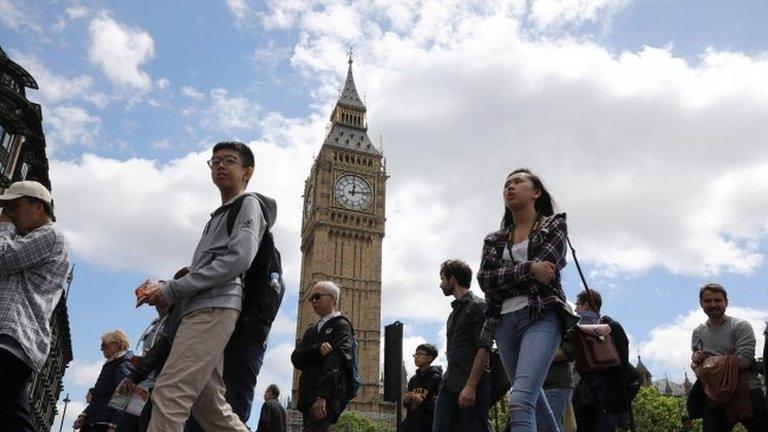Theresa May's cabinet: Who's in and who's out?
- Published
Theresa May has reshuffled her cabinet following the resignations of International Development Secretary Priti Patel and Defence Minister Sir Michael Fallon.
Here is a guide to who holds the key positions.


November 2017 reshuffle
International Development Secretary - Penny Mordaunt
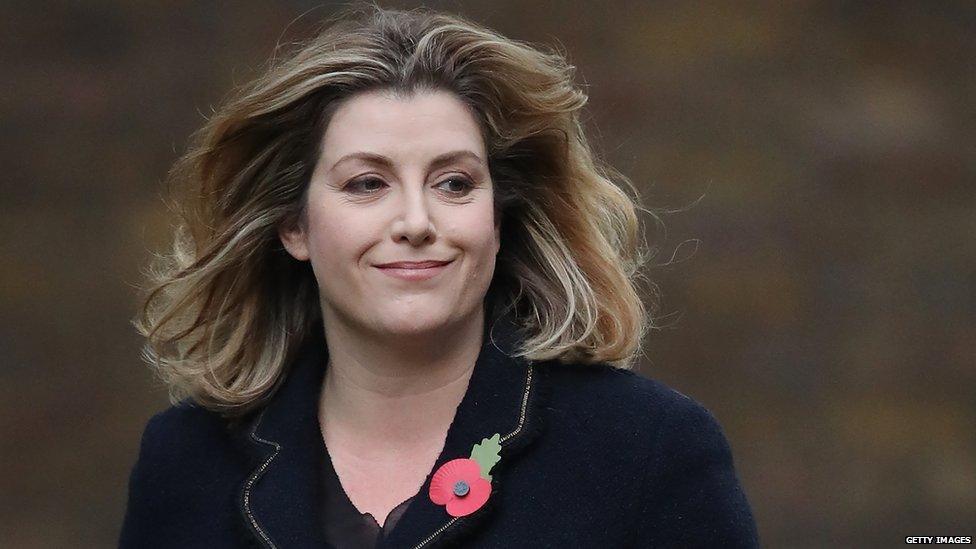
Penny Mordaunt: New International Development Secretary
Penny Mordaunt replaced Priti Patel on 9 November, after Ms Patel resigned in the wake of disclosures that she had held a series of unofficial meetings with senior Israeli figures.
Ms Mordaunt was previously minister of state for disabled people at the Department of Work and Pensions.
She was minister for the armed forces under David Cameron, and had been considered a contender to replace Sir Michael Fallon as defence secretary.
Penny Mordaunt, elected to parliament in 2010 as MP for Portsmouth North, is also known for her strong support of Brexit.
Defence Secretary - Gavin Williamson
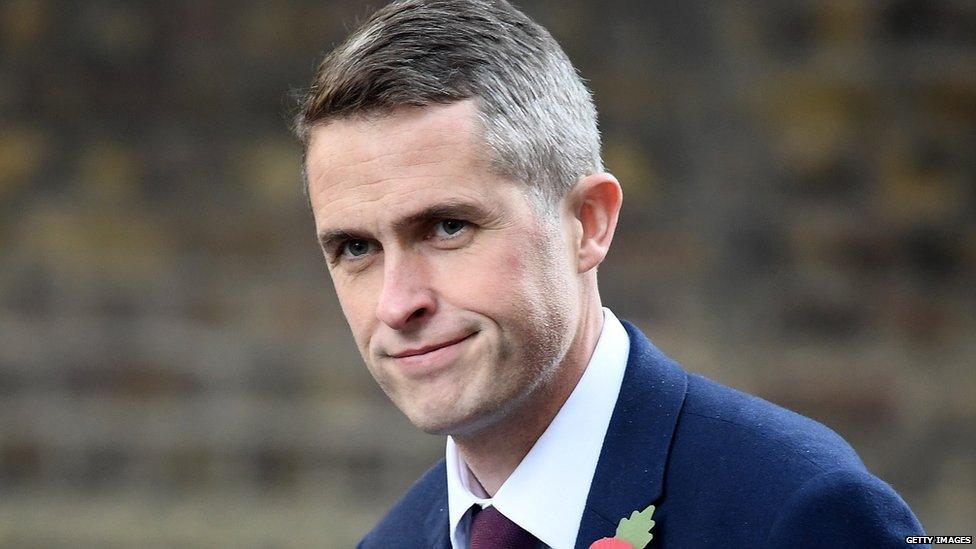
Gavin Williamson was appointed defence secretary on 2 November
Chief whip and key Theresa May ally Gavin Williamson replaced Sir Michael Fallon on 2 November, after the former defence chief resigned amid allegations over his past conduct.
The appointment is Mr Williamson's first cabinet post. The MP for South Staffordshire was elected to parliament in 2010, and was previously an aide to David Cameron.
Appointed June 2017
Prime Minister - Theresa May
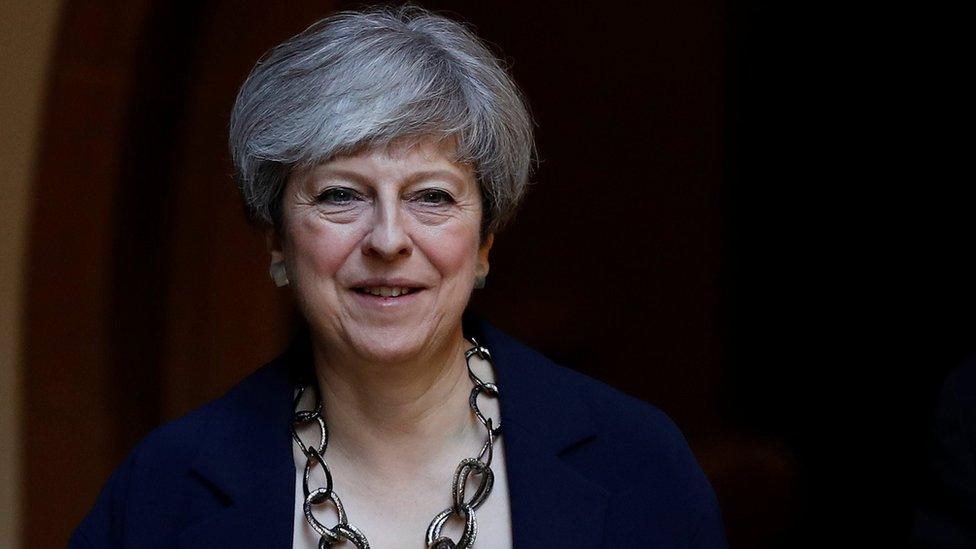
Theresa May remained prime minister despite losing her majority in the 8 June general election, which she had called seeking a mandate for Brexit.
Mrs May became the UK's second female prime minister in 2016, after David Cameron resigned in the wake of the EU referendum result.
She had previously been home secretary for six years.

First Secretary of State - Damian Green
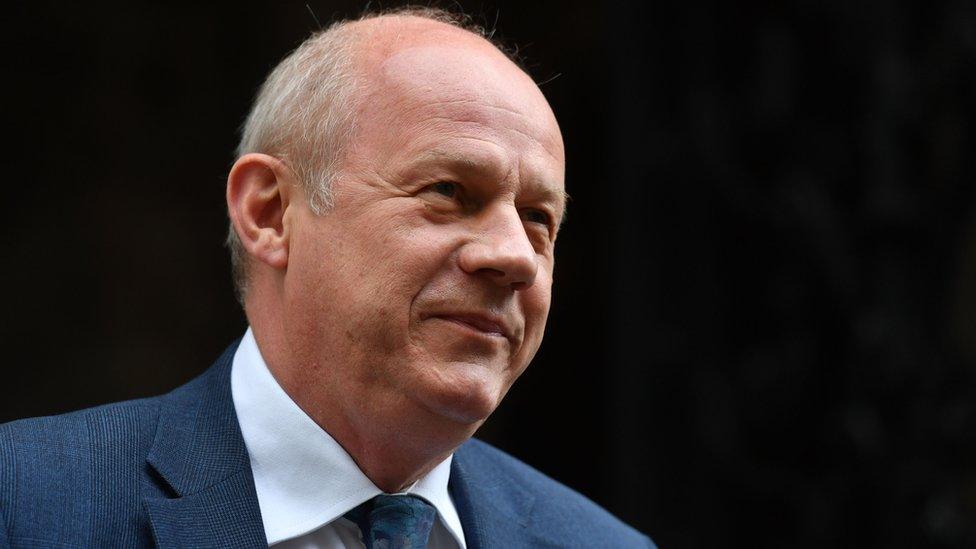
Damian Green is effectively Theresa May's deputy.
He was promoted to a new role the prime minister did not have in her first cabinet - that of first secretary of state. He also replaced Ben Gummer as minister for the Cabinet Office after Mr Gummer lost his seat in the election.
Mr Green was formerly work and pensions secretary, and is a long-term friend and ally of Theresa May.
The role - which was previously held by George Osborne and, under Labour, Peter Mandelson - gives Mr Green seniority over other cabinet ministers.

Chancellor of the Exchequer - Philip Hammond
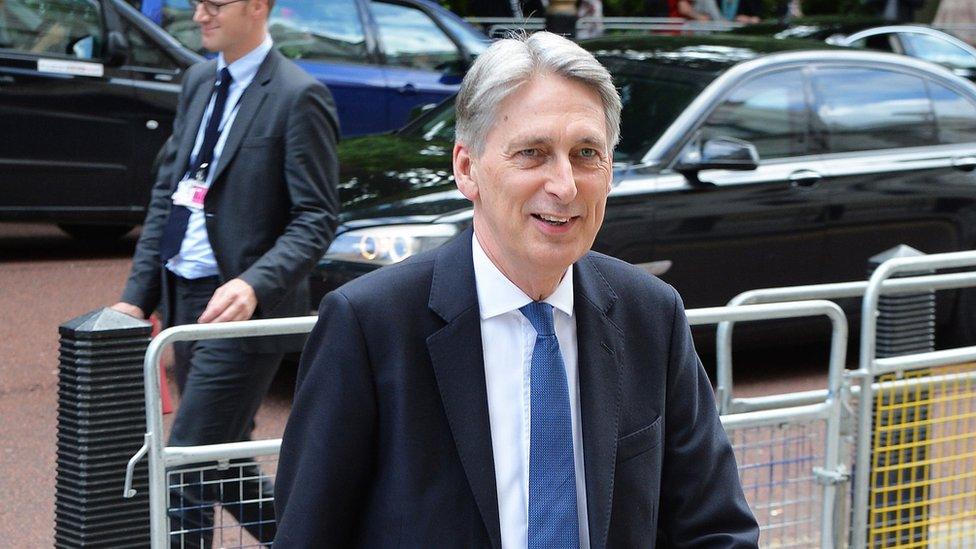
Philip Hammond remained chancellor of the exchequer after the June election.
He was foreign secretary under David Cameron from 2014 to 2016, having previously served as defence secretary and transport secretary.
Mr Hammond, 61, is seen at Westminster as the ultimate safe pair of hands steering Britain's economy through the post-Brexit period ahead.
Sometimes mocked as "box office Phil" for what some see as his dull delivery, he forged a reputation in the shadow Treasury team as the Tories' public spending "axeman".

Foreign Secretary - Boris Johnson
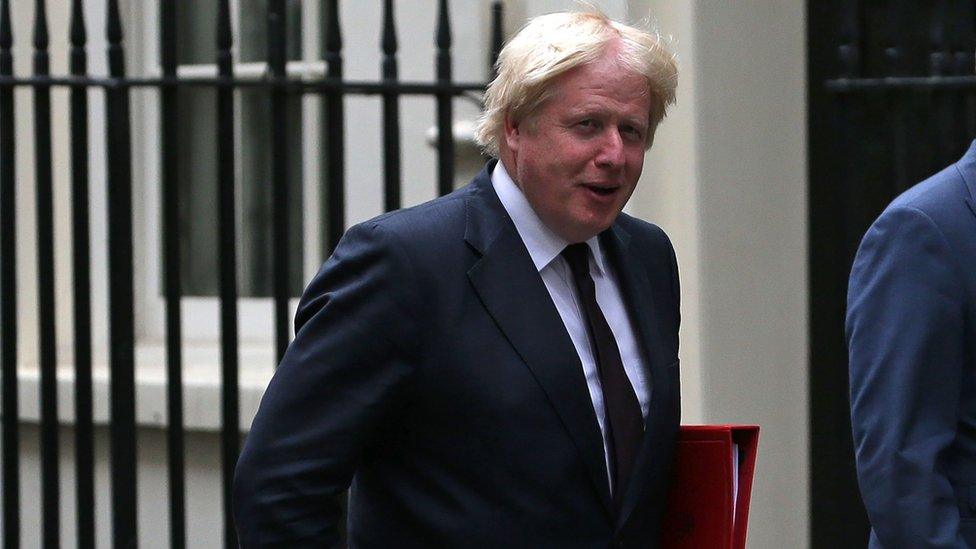
Another familiar face kept his job at the Foreign Office after the election. Despite hints from some of the newspapers that Boris Johnson, 52, seeks the top job, he has categorically dismissed such claims.
In the wake of June's shock election result, Mr Johnson said that while the public would be wondering about the future of the current government, Mrs May had got the biggest Conservative mandate anyone had achieved for decades.
"I'm going to be backing her, and absolutely everybody I'm talking to is going to be backing her as well."

Home Secretary - Amber Rudd
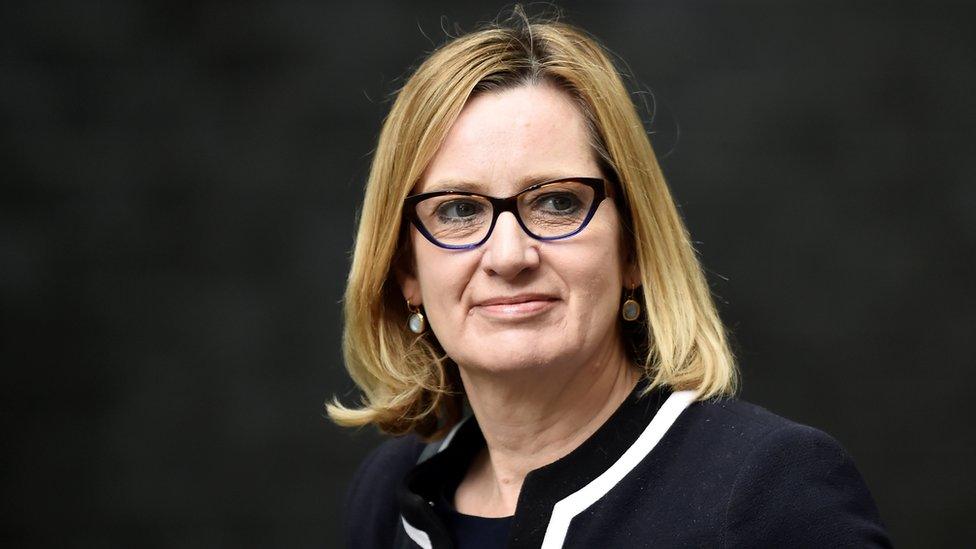
Amber Rudd remained home secretary despite only narrowly holding her seat as MP for Hastings and Rye in June. During the election campaign, she stood in for the PM in the BBC's televised debate.
Ms Rudd was previously energy and climate change secretary, a position she held for just one year.
The former investment banker, venture capitalist and financial journalist, aged 53, decided to enter politics in her 40s in order to get "a grip on her life".

Secretary of State for Exiting the EU - David Davis
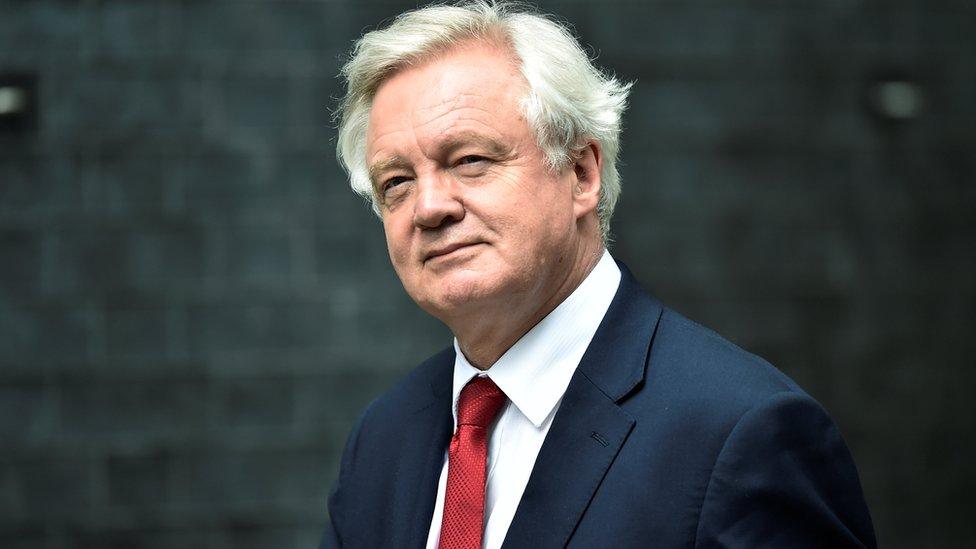
David Davis kept his job of secretary of state for exiting the European Union - or "Brexit secretary". The role was created in July 2016 to take the lead in negotiating the UK's exit from the EU.
A veteran Eurosceptic, he had previously held the positions of Conservative party chairman and shadow deputy prime minister. Between 2003 and 2008, he was the shadow home secretary under both Michael Howard and David Cameron.
Mr Davis, 68, lost to David Cameron in the 2005 Tory leadership contest.

Secretary of State for International Trade - Liam Fox
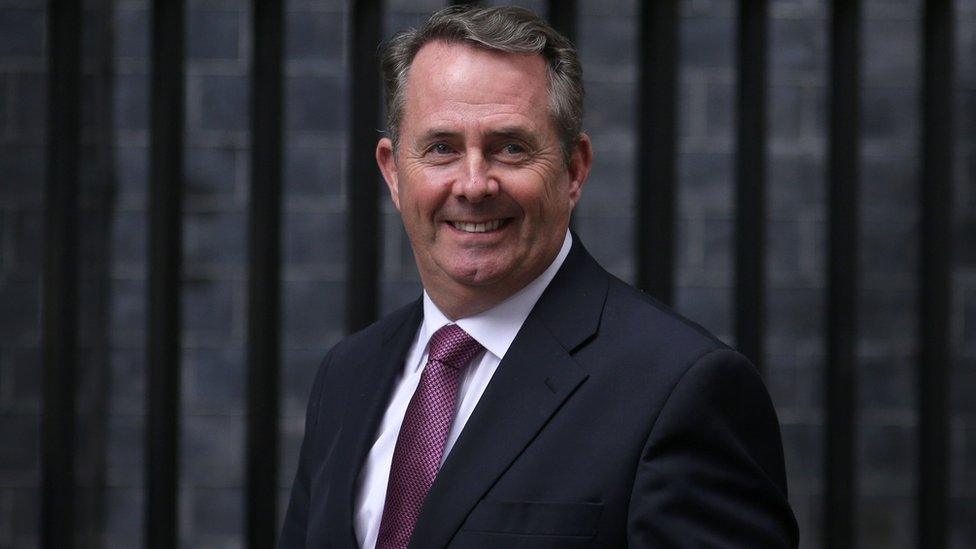
Liam Fox, 55, continues as the secretary of state for international trade. He was made secretary of state for defence in 2010 but resigned in 2011 over allegations he had given a close friend, lobbyist Adam Werritty, access to the Ministry of Defence and allowed him to join official trips overseas.
Mr Fox stood in the 2016 leadership race against Theresa May, but was eliminated in the first ballot after winning the support of just 16 MPs.

Justice Secretary - David Lidington
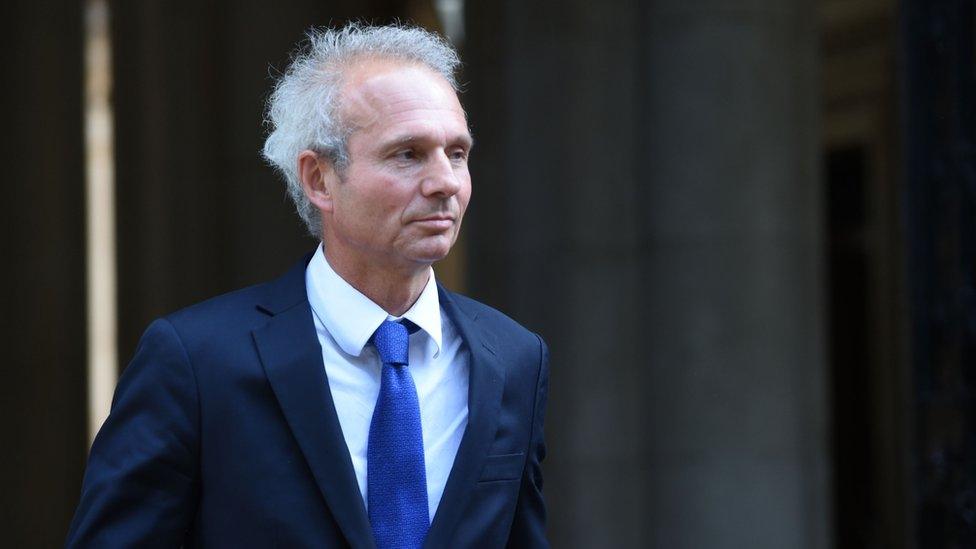
Former Leader of the House of Commons David Lidington was appointed justice secretary in June 2017, replacing Liz Truss.
He had been Europe Minister since 2010, but moved across to aid the smooth running of the Commons in 2016.
The Cambridge history graduate and father-of-four has been MP for Aylesbury since 1992. He previously worked for BP and mining firm Rio Tinto.

Leader of the House of Lords - Baroness Evans
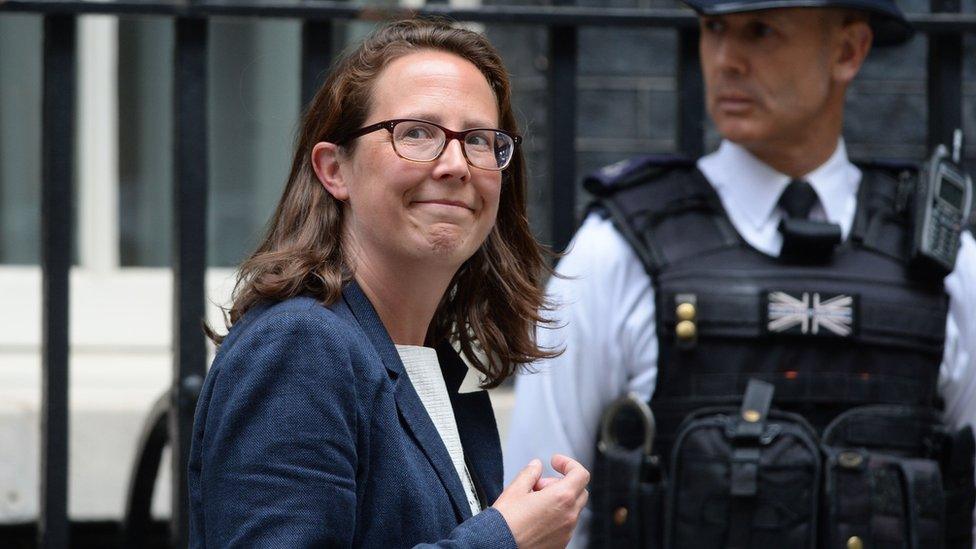
Baroness Evans of Bowes Park remained in post as the leader of the House of Lords. When appointed in 2016, it was her first ministerial role since being ennobled by David Cameron in 2014.
She attended London's Henrietta Barnett School and Cambridge University before becoming deputy director of the Conservative research department, deputy director of the Policy Exchange think-tank and chief operating officer of the New Schools Network - the organisation which ran Michael Gove's free schools programme.

Health Secretary - Jeremy Hunt
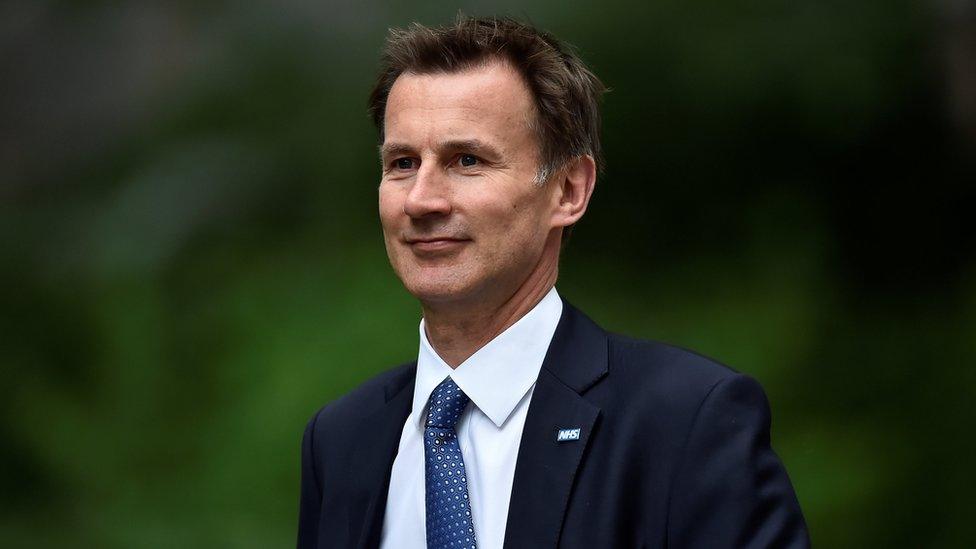
Jeremy Hunt kept his job despite the problems within the NHS.
He took over the health portfolio following a cabinet reshuffle in 2012, and at the time described the appointment as the "biggest privilege of my life". But in a tweet he admitted there were "challenges ahead, but also huge opportunities to make our NHS even better".
In 2015 Mr Hunt was locked in a battle with the British Medical Association over a new contract for junior doctors, which led to a series of strikes.

Education Secretary - Justine Greening
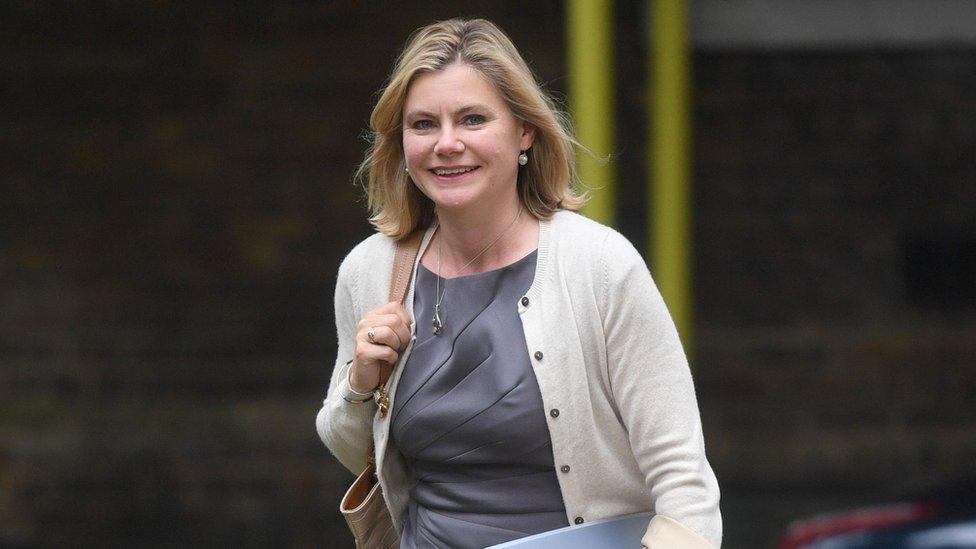
Justine Greening kept her roles as education secretary and minister for women and equalities. She is part of the most diverse Parliament yet as she openly defines herself as a lesbian.
At London Pride in 2016, the 48-year-old announced in a tweet she was in a same-sex relationship, saying "I campaigned for Stronger In but sometimes you're better off out!".
Ms Greening replaced Nicky Morgan at education in 2016, leaving her international development secretary post, which she was promoted to in 2011.
She has been MP for Putney since 2005.

Transport Secretary - Chris Grayling
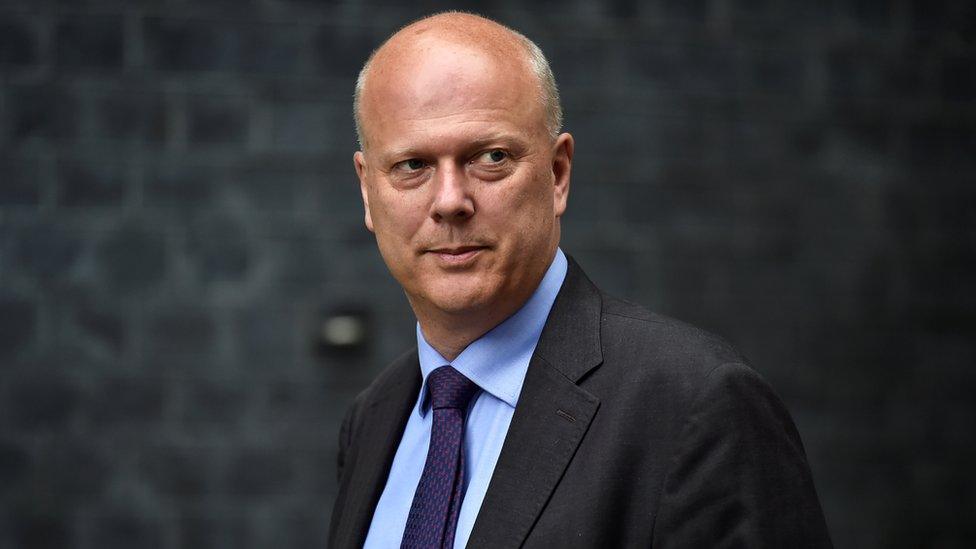
Chris Grayling remains as transport secretary in Theresa May's cabinet.
The former Leader of the House has been dealing with Southern Rail's disrupted services, the question of Heathrow's third runway and the high speed rail link, HS2.
He also served as shadow transport secretary from December 2005 to 2007.

Culture Secretary - Karen Bradley
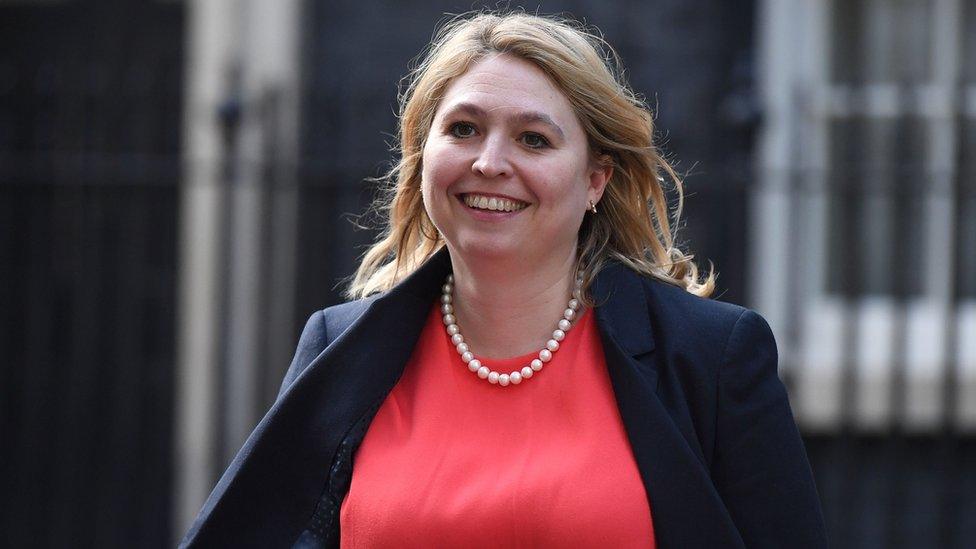
Karen Bradley kept her role as Culture, Media and Sport Secretary. She had been working with Theresa May as a Home Office minister since 2014.
She was first elected MP for Staffordshire Moorlands in May 2010.

Environment Secretary - Michael Gove
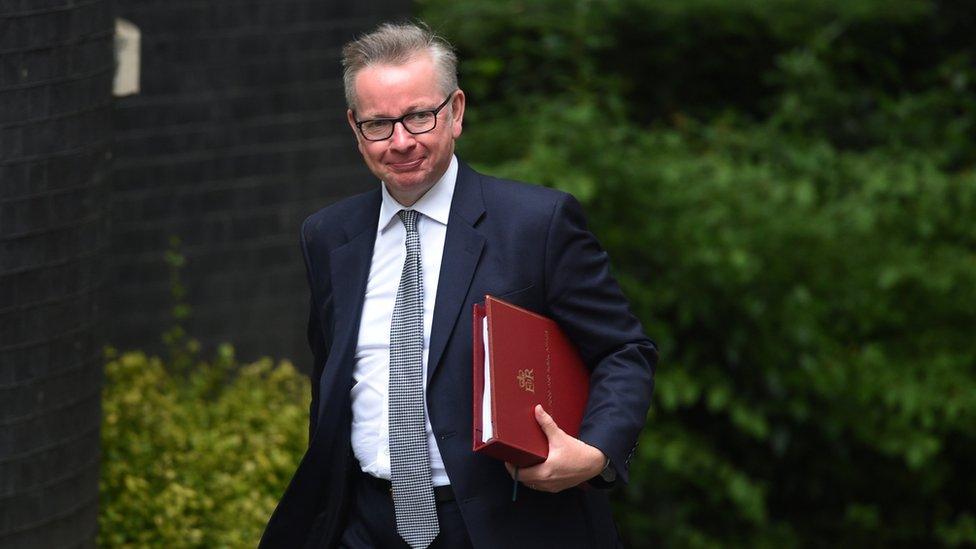
Michael Gove made a comeback in June 2017, with the prime minister bringing him back into cabinet by appointing him environment secretary.
In the 2016 reshuffle he was sacked as justice secretary after serving as David Cameron's education secretary and chief whip in the Tory-Lib Dem coalition.
Despite campaigning alongside Boris Johnson for Brexit, he withdrew his support for Mr Johnson to be Conservative leader and prime minister following the referendum, choosing instead to stand himself. He was eliminated in the final round of voting by MPs, coming third.

Work and Pensions Secretary - David Gauke
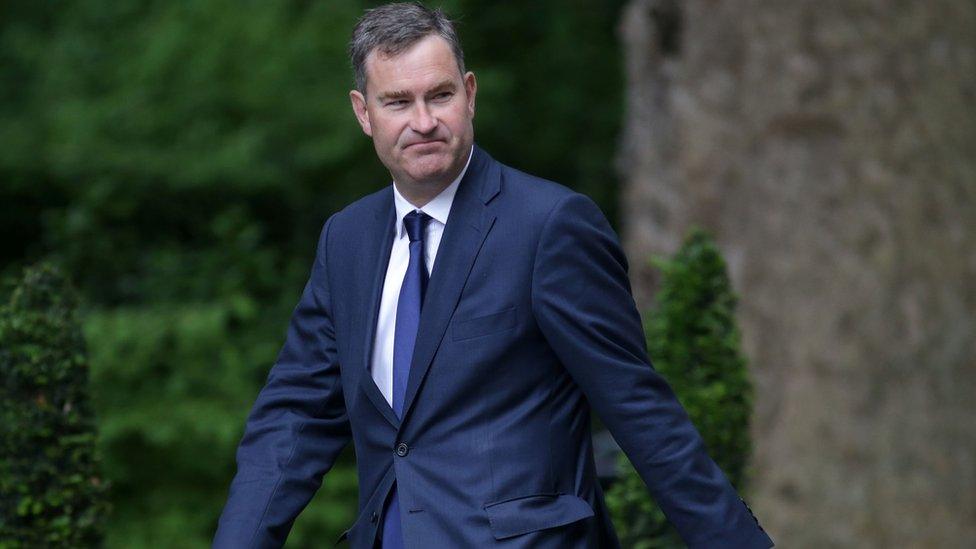
David Gauke became work and pensions secretary in June 2017. He was previously the Chief Secretary to the Treasury, who attends cabinet but does not have a ministerial role.
Mr Gauke has been the MP for Hertfordshire South West since 2005. He is a qualified solicitor and worked for a leading City firm until he was elected.

Communities Secretary - Sajid Javid
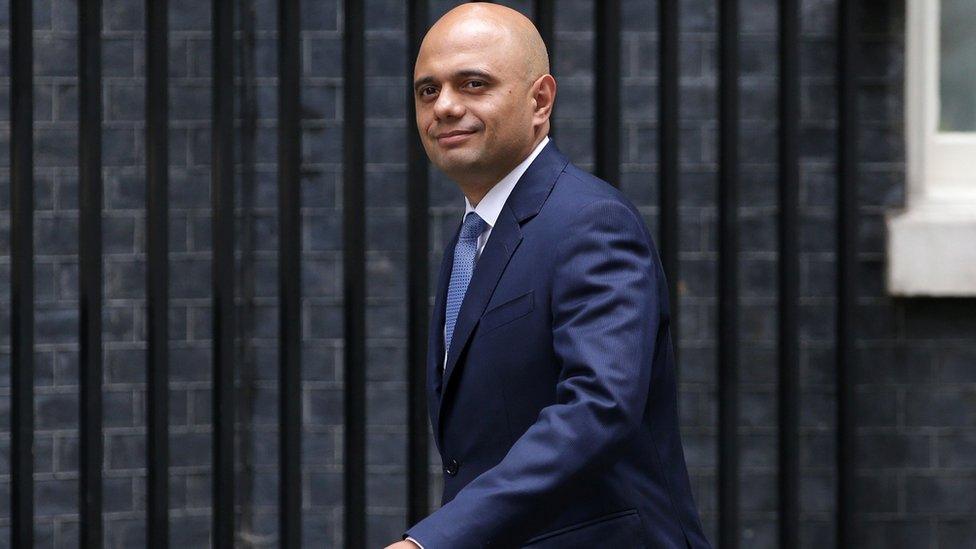
Sajid Javid retained his job as secretary of the department for communities and local government.
He held this position in 2014 before being appointed to business secretary a year later.
A former managing director of Deutsche Bank, Mr Javid has been MP for Bromsgrove in Worcestershire since 2010.
He stood on a "joint ticket" with Stephen Crabb for the leadership election, hoping to be chancellor if Mr Crabb had become PM.

Northern Ireland Secretary - James Brokenshire
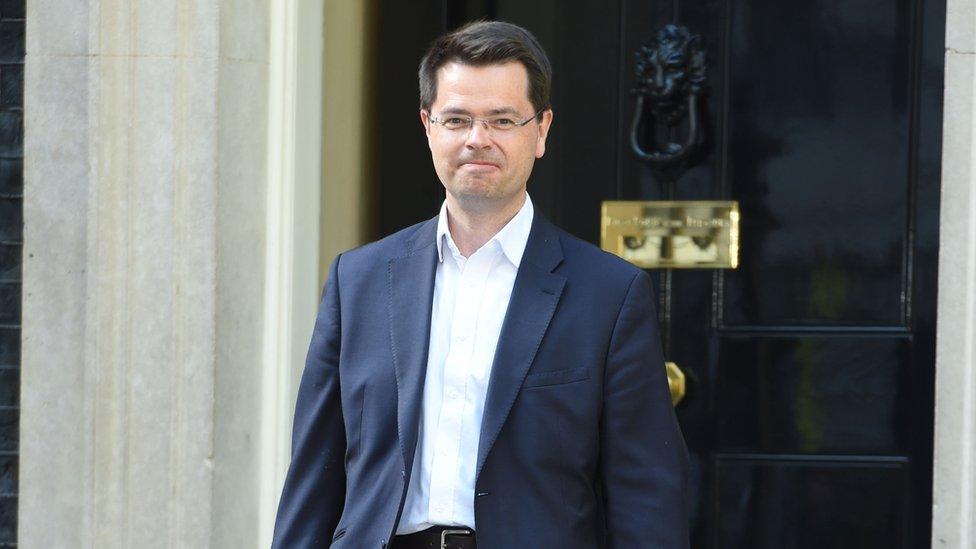
James Brokenshire continues as the Northern Ireland Secretary. He previously worked with the PM at the Home Office, where he was immigration minister.
From 2011 to 2015, he served as security minister at the Home Office with responsibility for domestic national security and counter-terrorism. This included supporting the home secretary with oversight of the work of MI5 and the national police counter-terrorism network.
Mr Brokenshire's responsibilities also included the government's counter-terrorism strategy and he was part of the prime minister's "extremism taskforce". He also led negotiations with the Jordanian government to secure the deportation of the radical cleric Abu Qatada.

Welsh Secretary - Alun Cairns
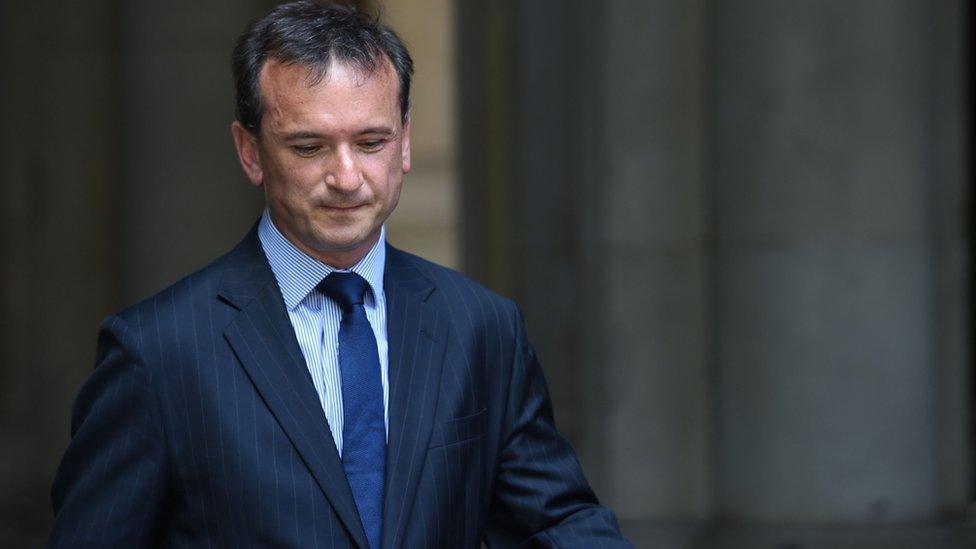
Alun Cairns, MP for the Vale of Glamorgan, remained in his cabinet role as secretary of state for Wales.
The 46-year-old, who was born in Swansea and is a graduate of the University of Wales, Newport, was elected in 2010.
He worked in banking for a decade before his election to the Welsh Assembly.

Scottish Secretary - David Mundell
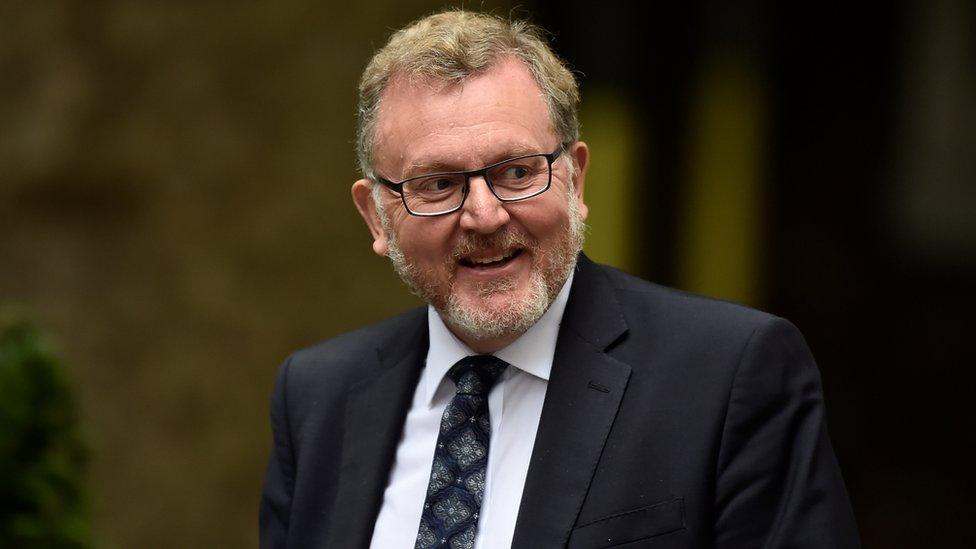
David Mundell will continue as secretary of state for Scotland. He is one of 13 Scottish Conservatives to be in Parliament after the June 2017 snap election.
Former prime minister David Cameron first appointed Mr Mundell to the post when he held his Dumfriesshire, Clydesdale and Tweeddale seat for the third consecutive election in 2015.
In January 2015, Mr Mundell became the first openly-gay Conservative cabinet secretary.

Conservative Party chairman and Chancellor of the Duchy of Lancaster - Patrick McLoughlin
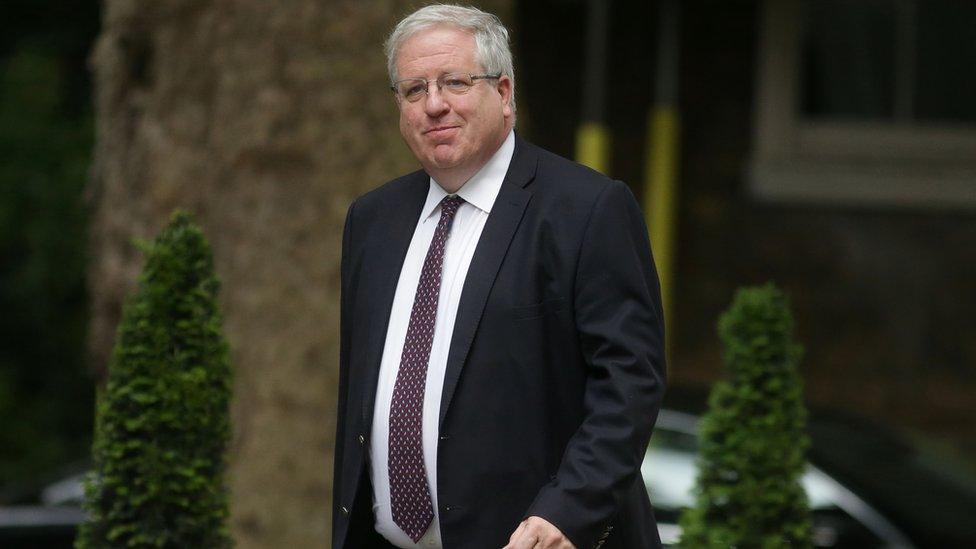
Patrick McLoughlin remains as the Conservative Party chairman and chancellor of the Duchy of Lancaster.
He left his role as transport secretary in 2016, but has been an MP since 1986.
The former miner also served as chief whip after being appointed to the role in David Cameron's first cabinet.

Business and Energy Secretary - Greg Clark
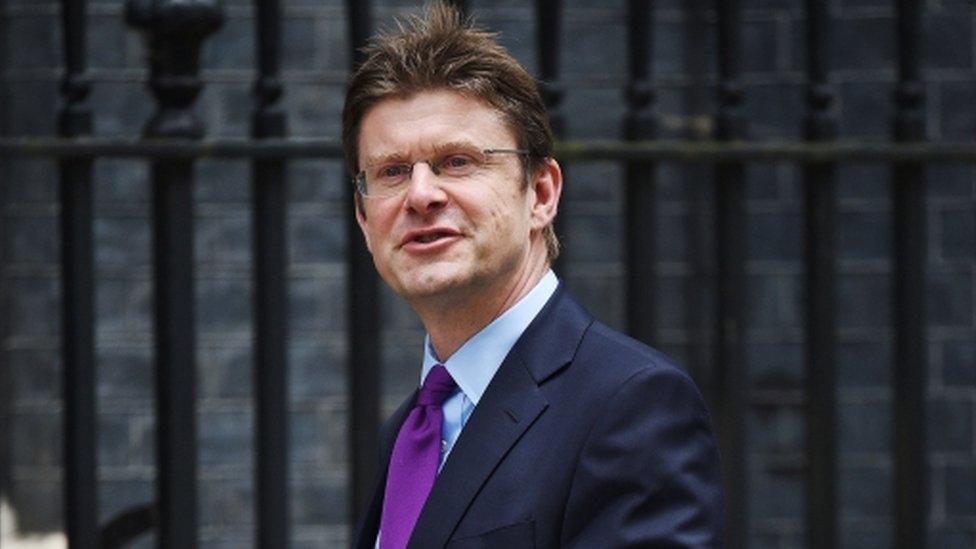
Greg Clark kept his job as secretary of state of business, energy and industrial strategy following the election.
The role, when it was created by Labour's Gordon Brown, was originally called the Department of Energy and Climate Change.
Last year, it was merged into the new department and lost the "climate change" part of its name.
Environmentalists immediately expressed concern that the reshaping of departments showed the government was downgrading climate change as a priority.

Also appointed, June 2017
Andrea Leadsom appointed Leader of the House of Commons (will also attend Cabinet meetings)
Jeremy Wright remained in post as attorney general (will also attend Cabinet meetings)
Liz Truss appointed as Chief Secretary to the Treasury (will also attend Cabinet meetings)
Brandon Lewis made the minister of state for immigration (will also attend Cabinet meetings)
- Published12 June 2017
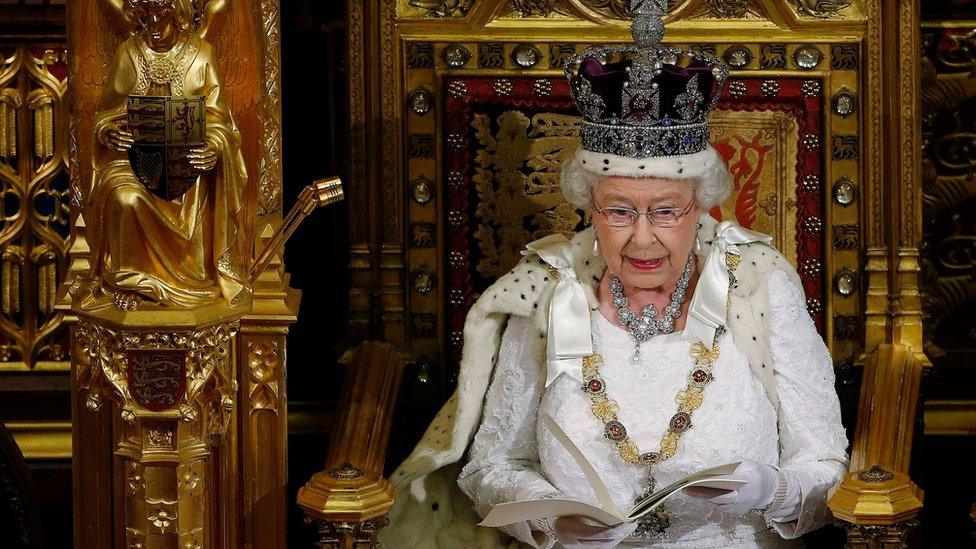
- Published26 June 2017
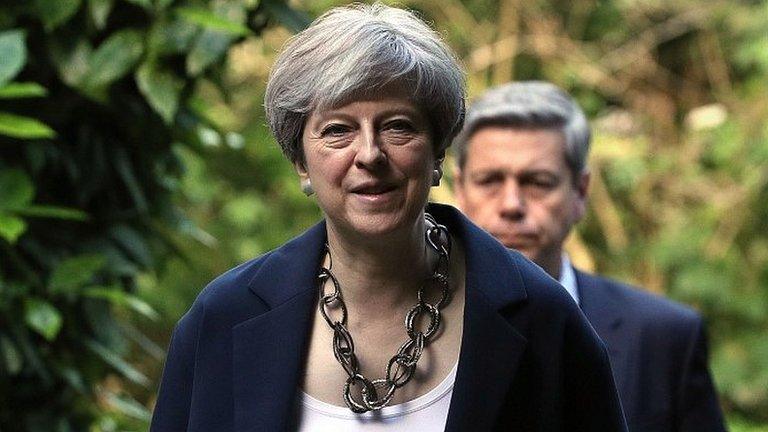
- Published9 June 2017
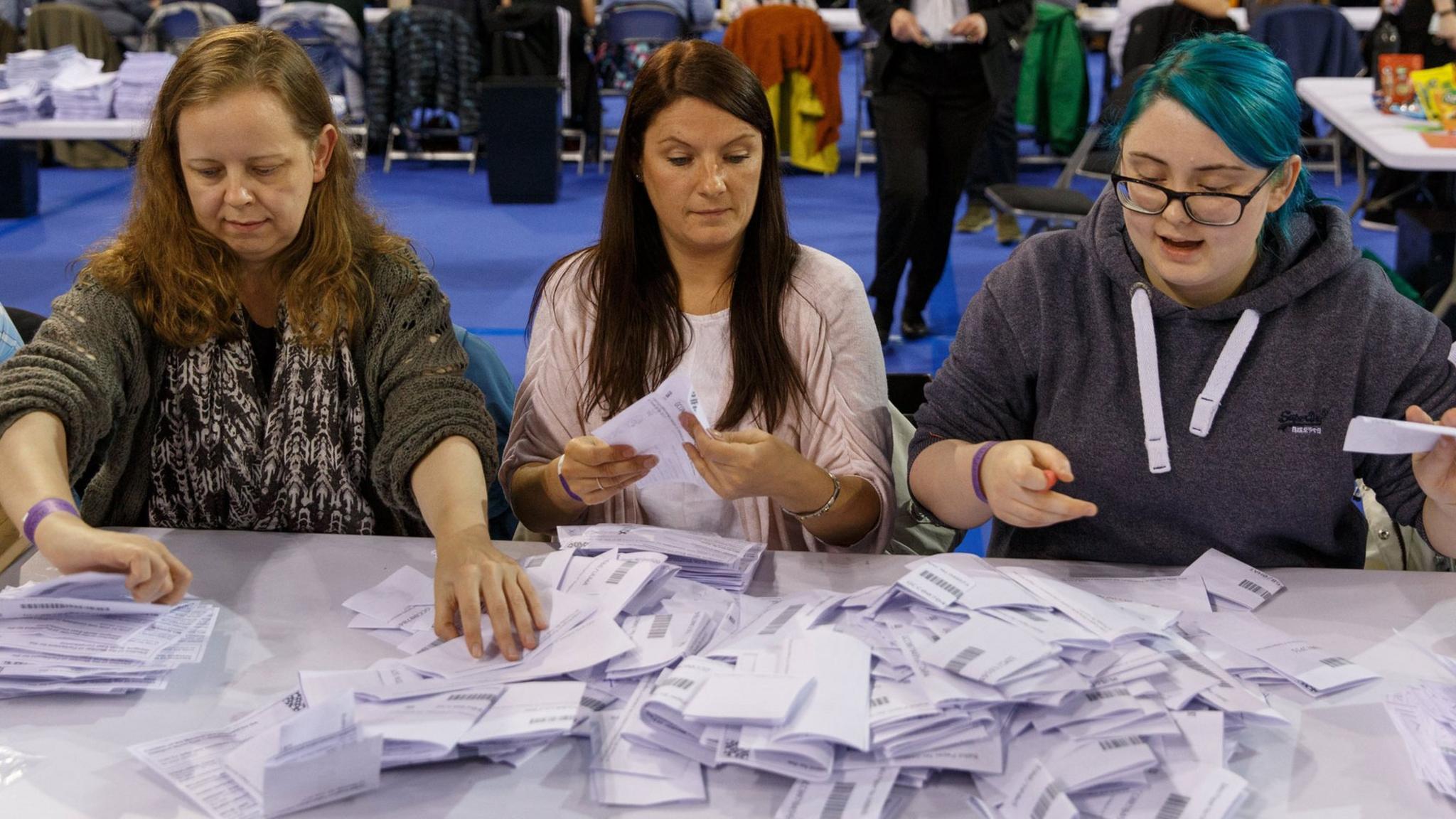
- Published10 June 2017
